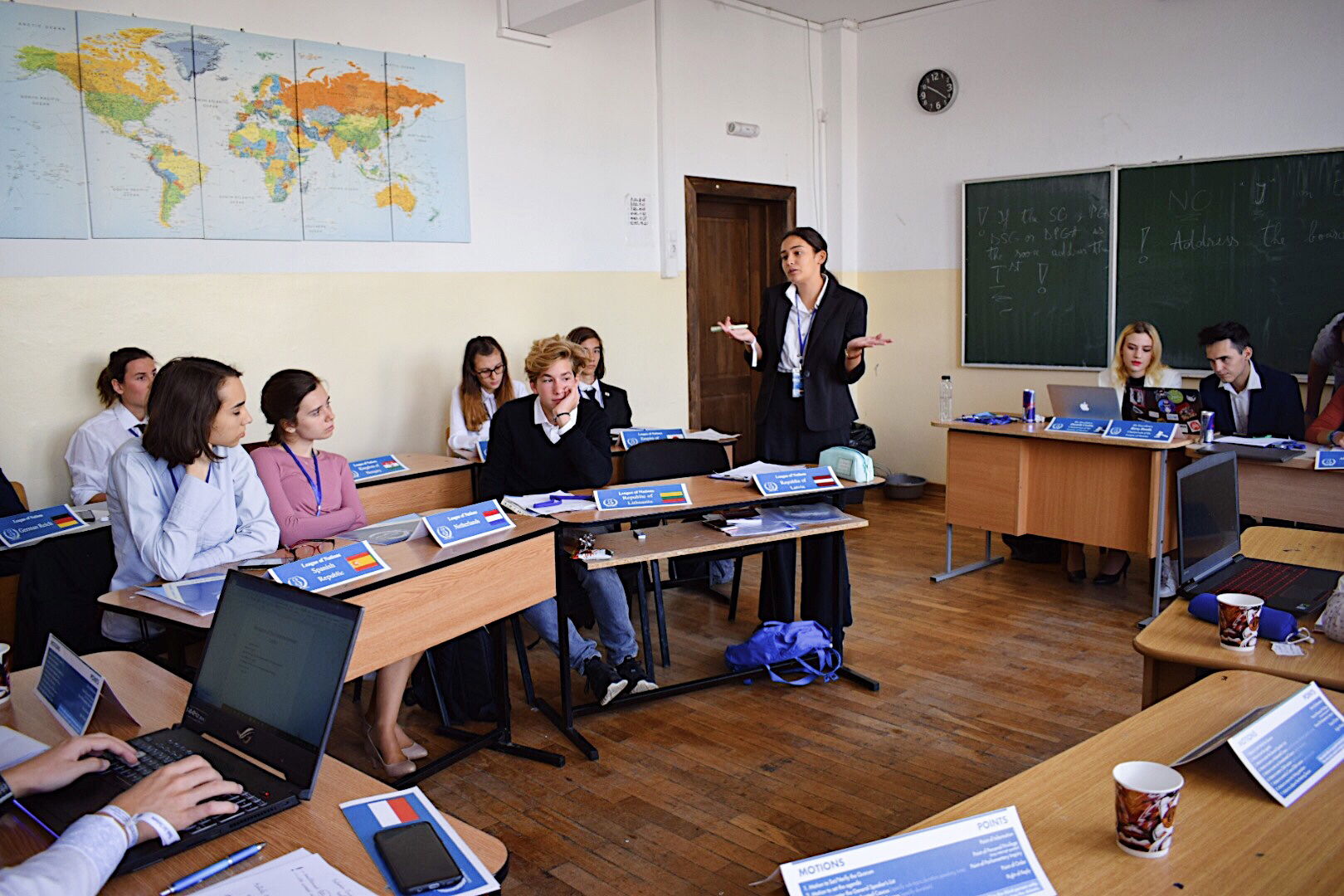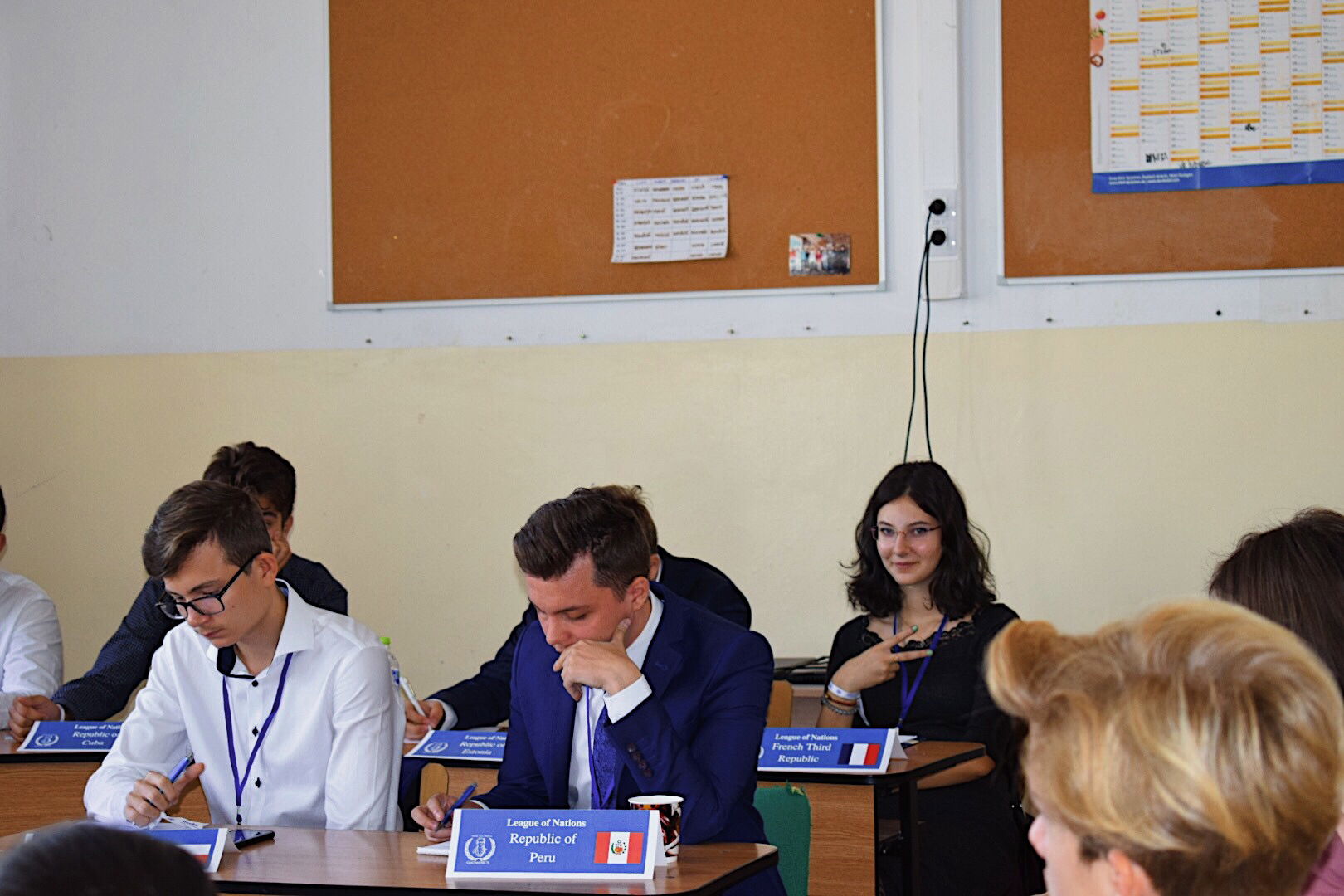League of Nations, day 2

By Eliza Maria Niculescu
The second day of conferences arrived quickly, the delegates in the League of Nations committee starting a heated debate about the necessity of peacekeepers between Colombia’s and Peru’s borders.
Czechoslovakia started by declaring that peacekeeping should be both sides’ responsibility. France raised the problem of protocol: there should be rules set for these peacekeepers, in order to prevent them from interfering with other situations. Russia and Germany strongly supported the idea of an equitable treaty for both sides, since it would solve the conflict easily. Both countries declared that armed officers are only a representation of the existing tension between Peru and Colombia; thus, there is “simply no need for peacekeepers”. Romania agreed, emphasizing the fact that a good treaty is more powerful than armed people. Peru had the final argument of this side: peacekeepers should be implemented after the treaty, not before.
Colombia and France, on the other hand, wanted to put peacekeepers at the border because they might help dissolve the conflict a little. When asked about the possibility of peacekeepers taking sides in a possible war, France declared that the troops are supposed to be neutral: they are sent by the League of Nations. Colombia added that peacekeepers are necessary, since agreements between their country and Peru are, for now impossible: every time they decide on a good treaty, a government changes their mind and conflicts ensue. Russia added that these treaties were not efficient because the League of Nations did not act as a mediator; if it would have, the conflict would have been solved. Cuba also declared that the Salomon Lozano Treaty’s flaw was that it had no sanctions for whoever violated it. Colombia was deeply affected by that mistake: “We signed the treaty back in 1992. Ten years later, you attacked us.”
An unmoderated caucus followed this discussion. After it, Peru took the floor and announced that they had come to an agreement with Colombia. Leticia should be put as a Porto Liber for 5 years; after, there should be a referendum, so the people will choose what they want to do with the land. Peacekeeping should be established at the borders, and trees should be cut around it, so future ambushes can be prevented. Peru also added that a legal framework is the top priority.
Right before the lunch break, our lovely chairs announced the punishments: Peru’s and Hungary’s delegates had the task to say in their country’s language: “Sorry I was late, I’m a moron and I promise it will never happen again.” The catch? While saying it in Hungarian, the delegates had water in their mouths. After that, Poland’s delegate was asked to sing the national anthem for the entire committee. The moment was extremely patriotic and solemn: it almost brought everyone to tears.
It’s safe to say that the first half of this day was a success: everyone certainly had fun!

